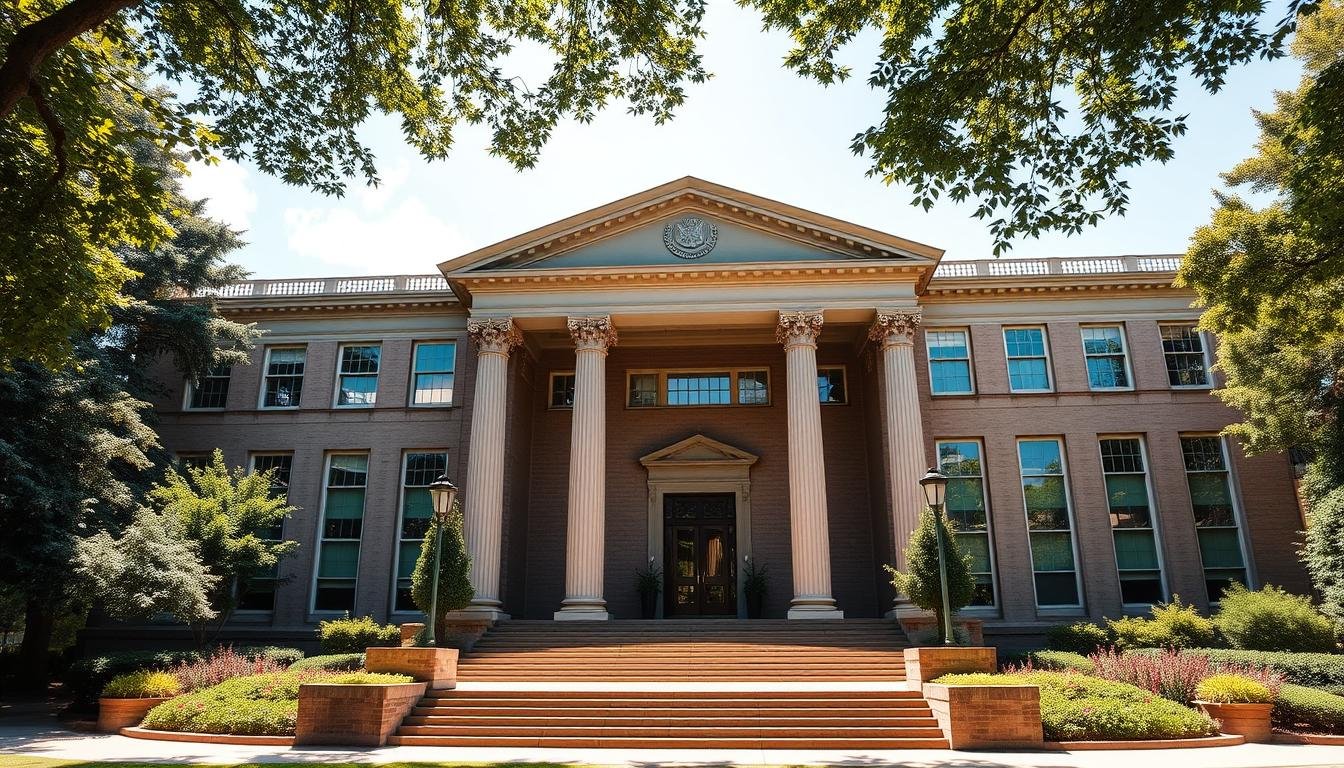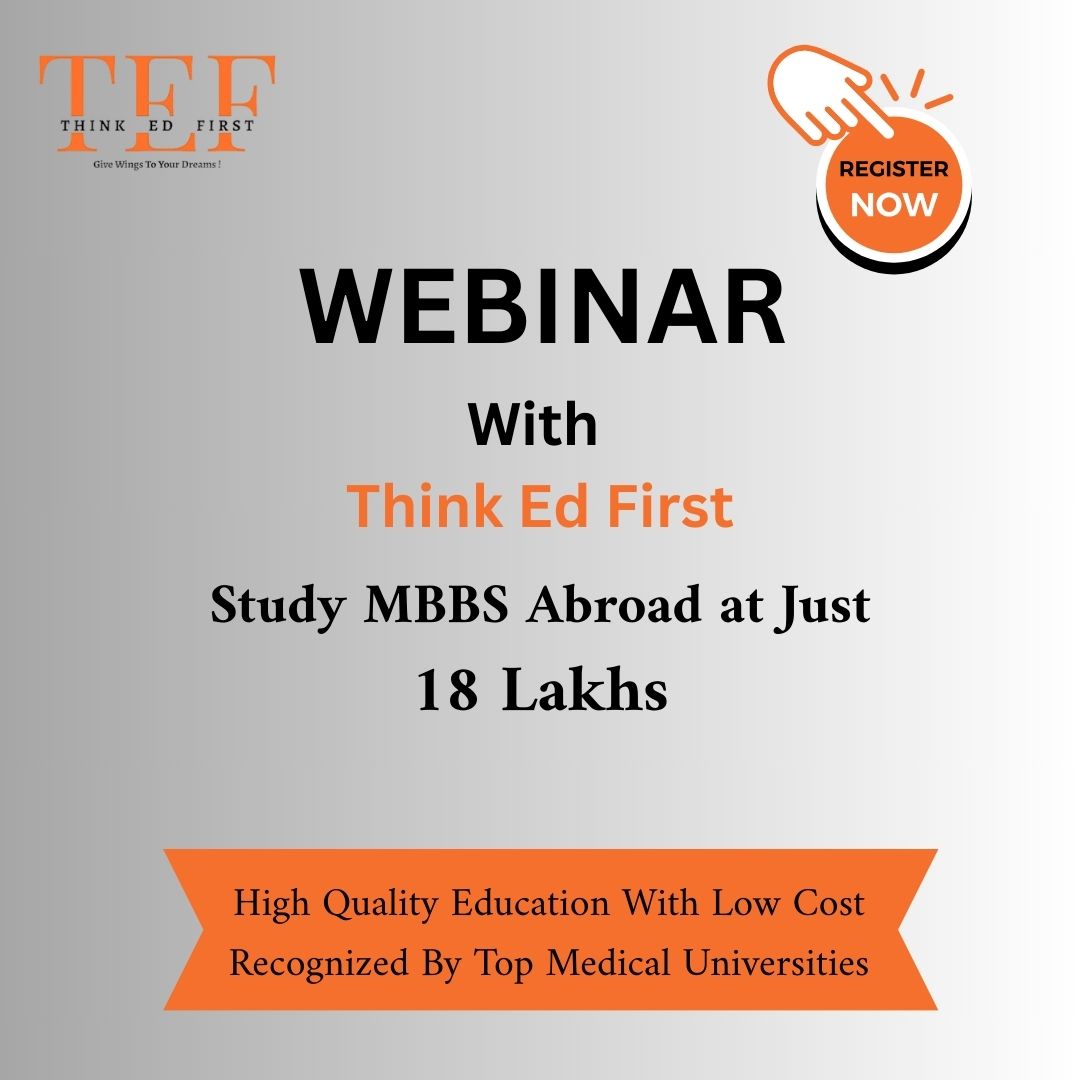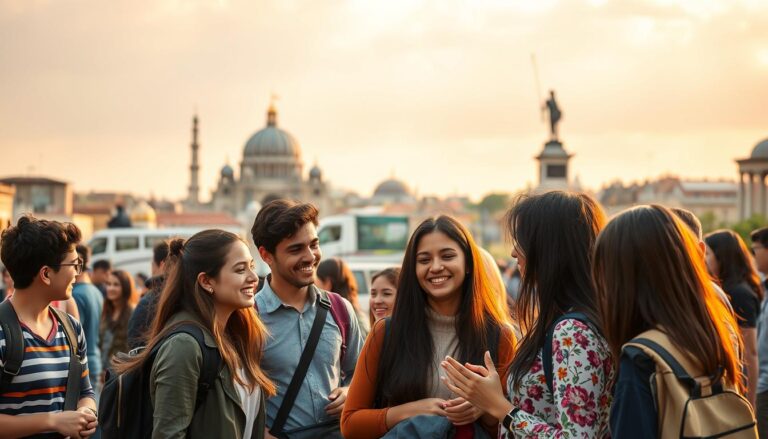Have you ever wondered why so many students from India are choosing to pursue their MBBS studies abroad? The answer lies in the unique blend of quality education, affordability, and global recognition that certain destinations offer. Among these, Russia stands out as a top choice for aspiring doctors.
Russian institutions, such as the First Moscow State Medical University, provide a structured and supportive environment for international students. With programs taught in English, students can focus on their studies without language barriers. The affordability of tuition fees makes it an attractive option for many families.
In this guide, we’ll explore the key factors to consider when selecting a university. From admission processes to campus facilities, we aim to help you make an informed decision. Let’s dive into the details and discover why studying MBBS in Russia could be the right choice for you.
Introduction to Medical Education in Russia
Russia has become a hub for aspiring doctors worldwide, offering a blend of quality education and affordability. With over 15,000 international students enrolling annually, the country’s state medical universities are known for their structured programs and global recognition. Indian students, in particular, find these institutions appealing due to their cost-effective tuition and supportive learning environment.
Overview of Medical Programs
Russian institutions offer a variety of programs tailored to meet diverse career goals. The most popular is the six-year MBBS program, which combines theoretical knowledge with hands-on clinical training. Other specialized courses include pediatrics, dentistry, and general medicine. These programs are designed to equip students with the skills needed to excel in the healthcare industry.
Accreditation by bodies like WHO and NMC ensures that degrees from Russian universities are recognized globally. This opens doors for graduates to practice medicine in India and other countries. The curriculum emphasizes both foundational sciences and practical experience, preparing students for real-world challenges.
Why Russia is a Top Destination for MBBS
Indian students are increasingly choosing Russia for their MBBS studies due to several advantages. One major factor is the absence of IELTS or TOEFL requirements, making the admission process simpler. Additionally, tuition fees are significantly lower compared to private institutions in India, with annual costs ranging from $4,200 to $7,200.
State-funded institutions like Moscow State Medical University provide excellent facilities and experienced faculty. These universities have a long-standing reputation for producing skilled medical professionals. For more insights, explore the benefits of pursuing MBBS in Russia.
- Affordable tuition and living costs.
- No language proficiency tests required.
- Globally recognized degrees accredited by WHO and NMC.
With its rich history and modern advancements, Russia continues to attract students seeking a rewarding medical career. The combination of quality education, affordability, and global opportunities makes it a top choice for aspiring doctors.
Understanding MBBS in Russia: Facts & Figures
Choosing the right destination for MBBS studies involves understanding key facts and figures. Russia’s structured programs and global recognition make it a top choice for aspiring doctors. Let’s explore the details of the MBBS course, its accreditation, and the value it offers.
Program Duration and Course Structure
The MBBS program in Russia spans six years, combining theoretical learning with practical training. The first five years focus on foundational sciences like anatomy, biochemistry, and pharmacology. The final year is dedicated to clinical internships, providing hands-on experience in hospitals.
This balanced approach ensures students are well-prepared for real-world challenges. The curriculum is designed to meet global standards, with an emphasis on research and innovation. Many state universities and federal institutions offer these programs, ensuring high-quality education.
Accreditation and Global Recognition
Degrees from Russian institutions are accredited by global bodies like WHO, NMC, and FAIMER. This recognition allows graduates to practice medicine in India and other countries. Over 55 medical universities in Russia are approved by the National Medical Commission (NMC) of India.
For example, institutions like Kazan Federal University and Crimea Federal University are known for their high FMGE pass rates. This ensures that students receive a globally competitive education. The transparent tuition fee structure further adds to the appeal, making it an affordable option for many families.
- Six-year program with a focus on clinical training.
- Accreditation by WHO, NMC, and FAIMER.
- Over 55 NMC-approved institutions in Russia.
With its structured curriculum and global recognition, Russia’s MBBS programs continue to attract students worldwide. The combination of quality education and affordability makes it a preferred destination for aspiring doctors.
Exploring the Best Medical University in Russia
When it comes to pursuing a career in medicine, selecting the right institution is crucial for success. Russia is home to several renowned institutions that offer a blend of quality education, affordability, and global recognition. These universities provide a supportive environment for students to thrive academically and professionally.
Highlights from Leading Institutions
Institutions like the First Moscow State Medical University and Pirogov Russian National Research Medical University are known for their comprehensive programs. These universities offer a mix of theoretical knowledge and practical training, ensuring students are well-prepared for their careers.
One standout feature is the low fee structure, which makes education accessible to many. For example, the annual tuition fee at Bashkir State Medical University is around 490,000 Rubles, while Volgograd State Medical University charges approximately $5,000 per year. This affordability does not compromise the quality of education.
Admission processes are streamlined, with no requirement for IELTS or TOEFL. This simplifies the application process for international students. Additionally, these institutions provide robust support systems, including mentorship programs and career guidance.
- Globally recognized degrees accredited by WHO and NMC.
- Modern facilities and research opportunities.
- Affordable tuition fees and cost-effective living expenses.
These universities have a proven track record of producing skilled medical professionals. Their focus on academic excellence and practical training ensures that students receive a well-rounded education. For those looking to study medicine, these institutions offer a pathway to a successful career.
Admission Criteria and Eligibility for Indian Students
For Indian students aspiring to study medicine abroad, understanding the admission criteria is the first step toward achieving their dreams. Russian institutions have clear and transparent norms, making the process straightforward for international applicants.
One of the primary requirements is a qualified NEET score. For general category candidates, a minimum of 164 marks is required, while reserved categories need 129 marks. This ensures that students meet the basic eligibility to pursue their studies in the field of medicine.
NEET Exam and Academic Requirements
Indian students must have completed their 10+2 education with a minimum of 50% in Physics, Chemistry, and Biology (PCB). Additionally, candidates must be at least 17 years old by December 31 of the admission year, with an upper age limit of 25 years for most institutions.
Unlike many other countries, Russian institutions do not require additional language proficiency tests like IELTS or TOEFL. This simplifies the application process, allowing students to focus on their academic preparations.
- NEET score is mandatory for admission.
- Minimum 50% in PCB for 10+2 education.
- Age limit: 17 to 25 years.
- No language proficiency tests required.
Institutions like the Perm State Medical University offer an affordable MBBS program with a supportive admission cycle. This ensures that students can navigate the process smoothly and focus on their academic goals.
With over 55 countries represented in Russian institutions, the admission process is designed to be inclusive and accessible. This global appeal makes it a preferred destination for students seeking quality education in medicine.
Comparing State, Federal, and Private Institutions
Understanding the differences between state, federal, and private institutions can help students make informed decisions about their education. Each type offers unique advantages in terms of funding, resources, and research opportunities. Let’s explore how these institutions cater to varying academic goals.
Differences in Funding and Research Opportunities
State-funded institutions often receive government support, which keeps tuition fees lower. This funding also enhances research facilities, providing students with access to advanced laboratories and equipment. Federal universities, on the other hand, benefit from national-level funding, enabling them to undertake large-scale research projects.
Private institutions rely on tuition fees and private donations. While they may charge higher fees, they often offer state-of-the-art infrastructure and personalized learning experiences. However, research opportunities can vary depending on the institution’s focus and resources.
Examples of Prestigious Universities
Several institutions stand out for their research excellence and quality education. For instance, Lomonosov Moscow State University is renowned for its contributions to science and medicine. Kazan Federal University is another top choice, known for its innovative research programs.
Private institutions like Samara State Medical University offer specialized programs and modern facilities. These universities attract students seeking a more tailored academic experience.
| Institution | Type | Annual Tuition Fees (USD) | Research Focus |
|---|---|---|---|
| Lomonosov Moscow State University | Federal | $5,246 | Science & Medicine |
| Kazan Federal University | Federal | $5,585 | Innovation & Technology |
| Samara State Medical University | Private | $6,817 | Specialized Medicine |
Choosing the right institution depends on your academic goals and financial situation. State and federal universities offer affordable tuition and robust research opportunities. Private institutions provide a more personalized experience with modern facilities. Consider these factors to find the best fit for your educational journey.
Tuition Fees and Living Costs Overview
Planning your finances is a critical step for Indian students aiming to study medicine abroad. Understanding the cost structure helps in making informed decisions and ensures a smooth academic journey. Let’s break down the expenses involved in pursuing medical education in Russia.
Cost Breakdown and Budgeting Tips
Tuition fees in Russian institutions are highly competitive, making them an attractive option for Indian students. For example, Kazan State Medical University charges around Rs 6.27 Lakhs per year, while hostel fees are approximately Rs 17,000 annually. Other universities like Yaroslavl State Medical University offer even lower tuition fees, starting at Rs 2.26 Lakhs per year.
Living costs in Russia are also affordable, averaging around INR 12,000 per month. This includes accommodation, food, transportation, and other daily expenses. Here’s a quick comparison of costs at some top institutions:
- Volgograd State Medical University: Tuition – Rs 4.18 Lakhs/year, Hostel – Rs 36,000/year.
- Kursk State Medical University: Tuition – Rs 4.55 Lakhs/year, Hostel – Rs 57,000/year.
- Crimean Federal University: Tuition – Rs 3.35 Lakhs/year, Hostel – Rs 45,000/year.
To manage expenses effectively, Indian students can follow these budgeting tips:
- Opt for shared accommodations to reduce hostel costs.
- Cook meals at home instead of eating out frequently.
- Use public transportation to save on travel expenses.
- Take advantage of student discounts on essentials.
Government funding and competitive tuition fees make medical education in Russia affordable without compromising quality. Institutions like Kazan State Medical University provide excellent facilities and globally recognized degrees, ensuring students receive a high-quality education.
Benefits of Studying Medicine in Russia
Studying medicine abroad opens doors to a world of opportunities, and Russia stands out as a prime destination. With globally recognized degrees and a structured curriculum, students gain both theoretical knowledge and practical skills. The six-year MBBS program ensures comprehensive training, preparing graduates for successful careers in healthcare.
Quality Education & Global Opportunities
Russian institutions offer high-quality education with modern facilities and experienced faculty. The MBBS program is designed to meet global standards, ensuring students are well-prepared for real-world challenges. Clinical exposure begins early, allowing students to apply their knowledge in hospital settings from the first year.
Degrees from Russian institutions are accredited by WHO, NMC, and UNESCO, making them valid worldwide. This recognition opens doors for graduates to practice medicine in India and other countries. Additionally, the English language curriculum eliminates language barriers, enabling students to focus on their studies.
Here are some key advantages of choosing a Russian institution:
- A six-year program that combines theoretical learning with hands-on clinical training.
- Globally recognized degrees accredited by WHO, NMC, and UNESCO.
- Early clinical exposure, starting from the first academic year.
- Opportunities for postgraduate education and advanced research.
- Cultural integration in an international environment that supports personal growth.
Studying in Russia also provides cultural exposure, with students from over 55 countries enrolled in various programs. This diverse environment fosters global perspectives and enriches the learning experience. The affordable tuition fees and cost-effective living expenses make it an attractive option for Indian students.
| Benefit | Details |
|---|---|
| Global Recognition | Degrees accredited by WHO, NMC, and UNESCO. |
| Clinical Exposure | Hands-on training from the first year. |
| Affordable Fees | Tuition fees range from Rs. 4.5 to 8 lakhs per year. |
| Cultural Diversity | Students from over 55 countries. |
| Postgraduate Opportunities | Pathways for advanced research and specialization. |
Choosing to study in Russia not only provides a solid foundation in medicine but also opens up a world of opportunities. The combination of quality education, global recognition, and cultural exposure makes it a rewarding experience for aspiring doctors.
Student Life and Cultural Adaptation in Russia
Adapting to a new country while pursuing your studies can be both exciting and challenging. For Indian students enrolled in MBBS programs, Russia offers a vibrant student life and opportunities for cultural immersion. Let’s explore what daily life looks like and how to make the most of your experience.
Accommodations, Campus Facilities, and Indian Mess
Most institutions provide on-campus housing, which is affordable and convenient. Hostels are equipped with basic amenities like Wi-Fi, study rooms, and laundry facilities. For those who prefer off-campus living, shared apartments are a popular choice, offering more independence.
Indian students will find comfort in the availability of Indian mess facilities on many campuses. These messes serve familiar meals, ensuring students can enjoy home-cooked food even while abroad. Additionally, communal kitchens allow students to prepare their own meals if they prefer.
Campus facilities include libraries, sports complexes, and medical centers, ensuring students have everything they need for a balanced lifestyle. Extracurricular activities like student clubs and cultural events provide opportunities to connect with peers and explore new interests.
Integrating into Russian Culture
Adjusting to a new culture involves understanding local customs and traditions. Learning basic Russian phrases can go a long way in daily interactions and help build connections with locals. Many universities offer language courses specifically designed for international students.
Engaging in local festivals and events is a great way to immerse yourself in Russian culture. From traditional dance performances to winter celebrations, these activities offer a glimpse into the country’s rich heritage. Students often find that participating in such events enhances their overall experience.
Here are some tips for cultural adaptation:
- Learn basic Russian phrases to ease communication.
- Participate in university-organized cultural events.
- Connect with local students to gain insights into Russian life.
- Explore the city and nearby attractions during weekends.
Institutions also ensure students meet attendance and participation requirements, which positively influence academic outcomes. Regular check-ins and mentorship programs help students stay on track while adjusting to their new environment.
With over 300,000 international students in Russia, campuses are diverse and inclusive. This multicultural environment fosters global perspectives and enriches the learning experience. For more insights on affordable education options, explore how to study MBBS abroad at low cost.
Opportunities for Research and Continuing Education
Exploring advanced research and continuing education options can significantly enhance your medical career. Russian institutions are known for their focus on innovation and practical training, offering students a pathway to excel in the healthcare industry.
Postgraduate Prospects and Career Growth
After completing the MBBS program, students can pursue postgraduate courses in specialized fields like surgery, pediatrics, or cardiology. These programs are designed to deepen knowledge and provide hands-on experience in advanced medical practices.
Many institutions collaborate with leading hospitals and research centers, ensuring students gain real-world exposure. For example, Perm State Medical University offers extensive clinical rotations and research projects, preparing graduates for global challenges.
Career prospects are promising, with opportunities to practice in Russia, India, or other countries. Graduates must clear licensure exams like NEXT or FMGE to practice in India. The high FMGE pass rates of Russian universities, such as Crimea Federal University, highlight the quality of education provided.
- Access to state-of-the-art research facilities and laboratories.
- Postgraduate programs tailored to specialized medical fields.
- Global career opportunities with degrees recognized by WHO and NMC.
- Strong alumni networks and industry collaborations for career readiness.
For those considering alternatives, Uzbekistan has emerged as an attractive destination for Indian students. Explore the top medical universities in Uzbekistan for affordable and globally recognized education.
Ongoing education and practical training are central to career progression in the medical field. Russian institutions ensure students are well-prepared for the challenges of modern healthcare, making them a preferred choice for aspiring doctors.
Conclusion
Pursuing a degree in medicine abroad can be a life-changing decision, and Russia offers a compelling choice. With globally recognized programs, affordable tuition, and quality education, it stands out as a top destination for Indian students. The NEET exam is the primary requirement, simplifying the admission process.
Russian institutions provide contemporary teaching methods and hands-on training, ensuring students are well-prepared for their careers. Degrees are accredited by major councils, making them valid in India and beyond. Cultural adaptation is seamless, with campuses offering diverse environments and support systems.
We encourage prospective students to explore official university websites for detailed information. Rest assured, a degree from a top Russian institution opens doors to global opportunities and a rewarding medical career.





